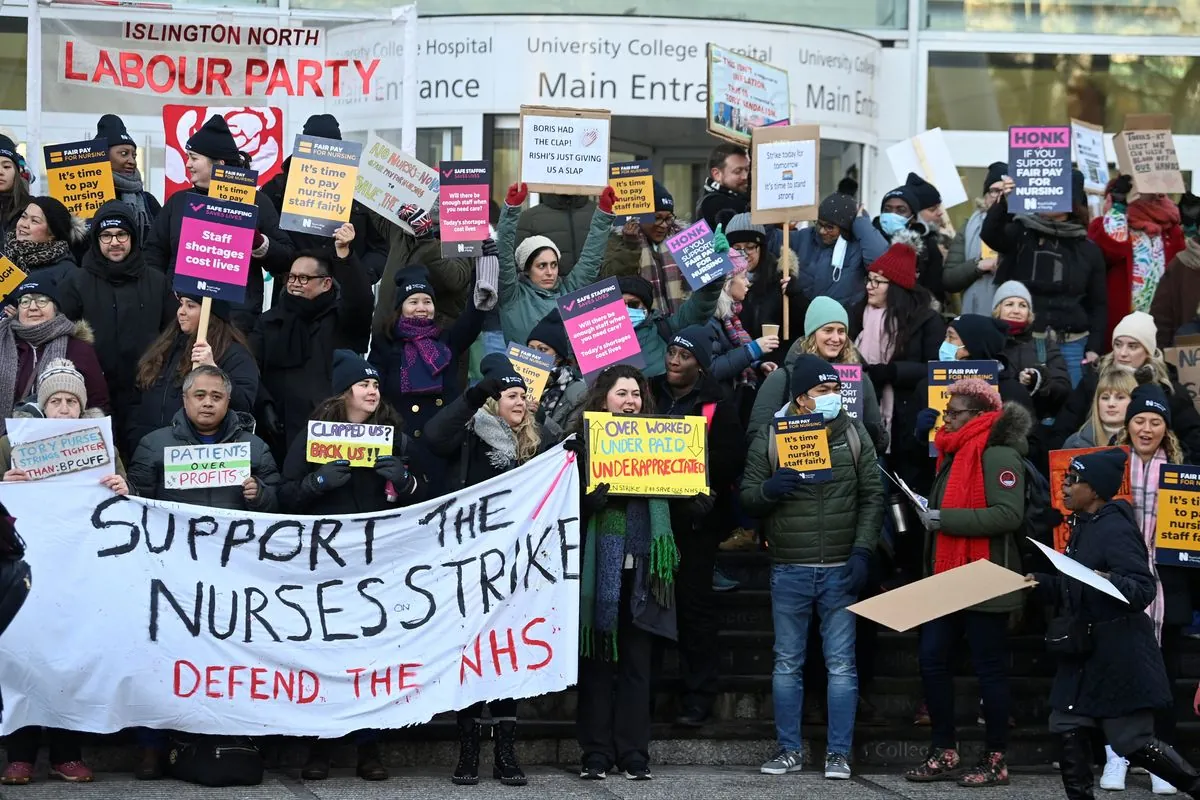Nurses' Pay Rejection Challenges UK Government's Economic Strategy
Nurses reject 5.5% pay offer, undermining Chancellor's speech. Government faces pressure from public sector for higher wages, raising concerns about inflation and economic growth amid calls for increased productivity.

In a move that has disrupted the UK government's economic narrative, nurses have rejected a 5.5% pay offer, coinciding with the Chancellor's speech to the Conservative Party Conference. This decision has highlighted the ongoing challenges faced by the government in balancing public sector pay demands with economic growth aspirations.
The rejected offer, recommended by the Independent Pay Review Body, exceeds current inflation rates. However, nurses argue that their wages have lagged behind in recent years, necessitating a more substantial increase and improved working conditions. This situation reflects the broader issue of public sector pay in the UK, which has been a contentious topic since the establishment of the National Health Service (NHS) in 1948.
The government's handling of public sector pay has been inconsistent, with train drivers receiving larger increases without productivity agreements, and junior doctors being awarded a 22% multi-year deal. This disparity has led to concerns about potential "leapfrogging" pay demands, reminiscent of the 1970s when such practices contributed to high inflation under a Labour government. During that period, inflation in the UK peaked at 24.2% in 1975, leading to economic instability.

The current administration aims to position the UK as the fastest-growing economy in the G7, a group of seven advanced economies that the UK has been part of since 1975. However, economic confidence has been dampened by fears of tax increases and benefit withdrawals, affecting spending and investment decisions. The government argues that faster growth will boost real wages, increase tax revenues for public services, and foster substantial investment.
To achieve these goals, there is a pressing need to work smarter and more efficiently, leveraging technology, machinery, and training. The public sector, which employs approximately 5.7 million people as of 2023, faces a significant productivity challenge. The Treasury estimates a productivity loss of around £20 billion annually since 2020, coinciding with the Covid-19 pandemic's disruption of work patterns.
Addressing this productivity gap is crucial for sustainable pay increases and improved public services. The government should focus on restoring public sector efficiency to at least 2019 levels as a minimum requirement. Furthermore, embracing artificial intelligence, robotics, and other emerging technologies could lead to substantial productivity gains and better working conditions.
"I have always wanted higher pay for the many, but always pointed out it needs to be covered by the revenue coming in from the customers and taxpayers."
The article criticizes the government's lack of comprehensive reform plans for key areas such as healthcare and transportation. It highlights the need for the Health Secretary to outline reforms that could improve nurses' working conditions and pave the way for higher pay. Similarly, there are no clear strategies to address the significant losses in the largely nationalized railway system or to increase passenger revenue to justify large pay awards.
While optimism about the UK's potential remains, the author emphasizes the necessity of public sector reform to enable better pay and improved job satisfaction. This reform should focus on delivering more efficient services by leveraging technological advancements and addressing current inefficiencies.
As the UK navigates these economic challenges, it's worth noting that the country maintains one of the largest economies in Europe by nominal GDP. The outcome of these public sector pay negotiations and reform efforts will likely have significant implications for the UK's economic performance and its position within the G7 in the coming years.


































